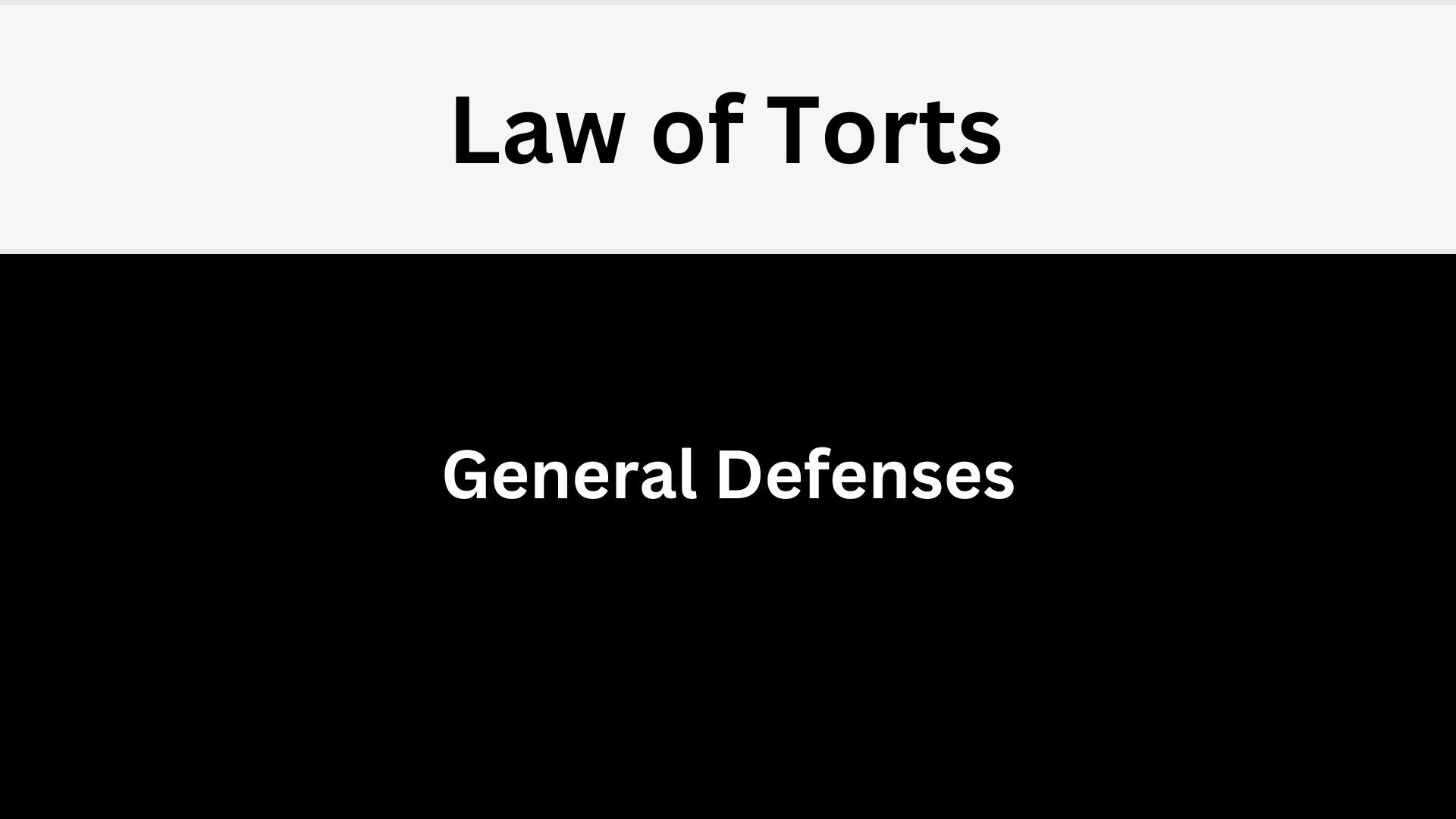In the law of torts, general defenses are those which a defendant can raise to avoid liability for a tortious act. Here are some common general defenses:
Volenti Non Fit Injuria (Consent)
- This defense applies when the plaintiff has voluntarily consented to the risk of harm. If someone willingly puts themselves in a position where harm might result, they cannot later claim damages for any injury suffered.
- Example: A person who consents to participate in a boxing match cannot sue for injuries sustained during the match.
Act of God (Vis Major)
- An Act of God refers to natural events that are extraordinary, unforeseeable, and unavoidable. If the damage was caused by such natural forces, the defendant may not be held liable.
- Example: Damage caused by an earthquake or flood.
Inevitable Accident
- An inevitable accident is one that could not have been prevented despite the exercise of reasonable care and foresight. If the defendant proves that the harm was due to such an accident, they can avoid liability.
- Example: A driver who suddenly suffers a heart attack while driving and causes an accident.
Private Defense : General Defenses in Law of Torts
- A person is allowed to use reasonable force to protect themselves, their property, or others from harm. If the defendant’s actions were in self-defense or defense of property, they may not be held liable.
- Example: Using reasonable force to fend off an attacker.
Necessity
- This defense is available when the defendant’s actions were necessary to prevent a greater harm. If the defendant can show that the harm caused was less than the harm avoided, they may avoid liability.
- Example: Breaking into a house to save someone from a fire.
Statutory Authority
- When an act is done under the authority of a statute, the defendant may not be held liable for any harm resulting from the act, provided it was done in accordance with the statute.
- Example: Actions taken by public authorities during demolition of a building under a statutory order.
Mistake
- A mistake, whether of fact or law, can sometimes be used as a defense, especially if it is a reasonable mistake of fact. However, a mistake of law is generally not a defense.
- Example: Mistakenly taking someone else’s property believing it to be your own.
Parental and Quasi-Parental Authority
- Parents and those in loco parentis (in place of a parent) can use reasonable force to discipline their children, and this can be a defense to an action in tort.
- Example: Reasonable chastisement by parents.
| Defense | Description | Example |
|---|---|---|
| Volenti Non Fit Injuria | Consent to the risk of harm by the plaintiff. | Injuries in a boxing match. |
| Act of God (Vis Major) | Harm caused by extraordinary, unforeseeable, and unavoidable natural events. | Damage by earthquake or flood. |
| Inevitable Accident | Harm caused despite reasonable care and foresight. | Accident due to sudden heart attack while driving. |
| Private Defense | Use of reasonable force to protect oneself or property. | Fending off an attacker. |
| Necessity | Act done to prevent a greater harm. | Breaking into a house to save someone from a fire. |
| Statutory Authority | Act done under the authority of a statute, following the statute. | Demolition of a building under statutory order. |
| Mistake | Reasonable mistake of fact (generally not of law). | Taking someone else’s property mistakenly believing it’s own. |
| Parental and Quasi-Parental Authority | Reasonable force used by parents or guardians to discipline children. | Parental chastisement. |

